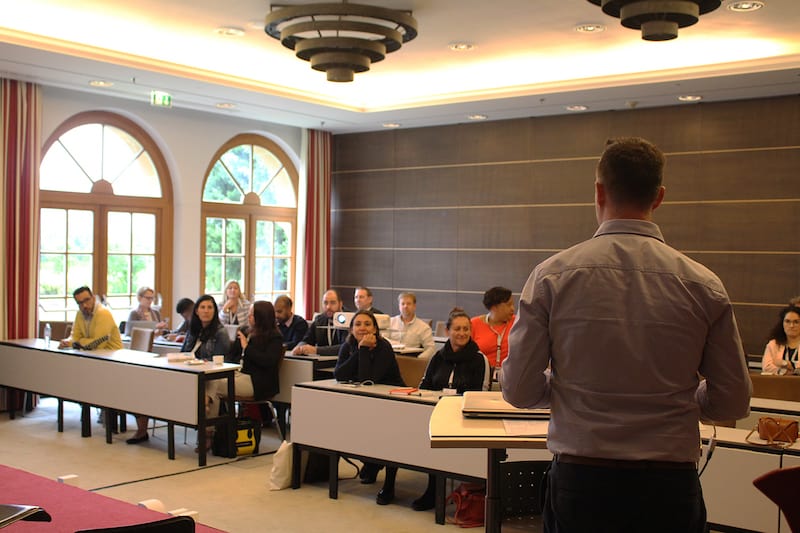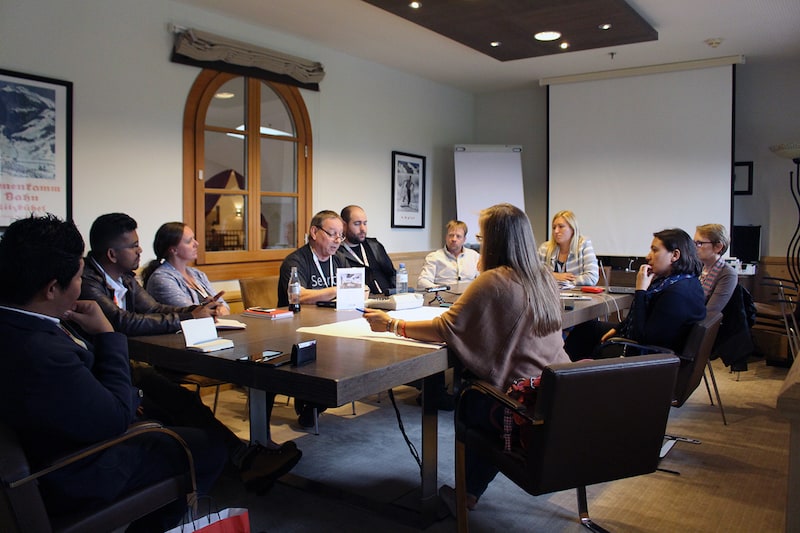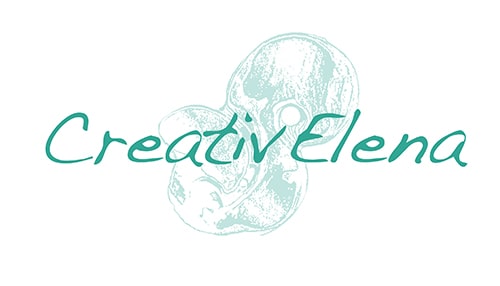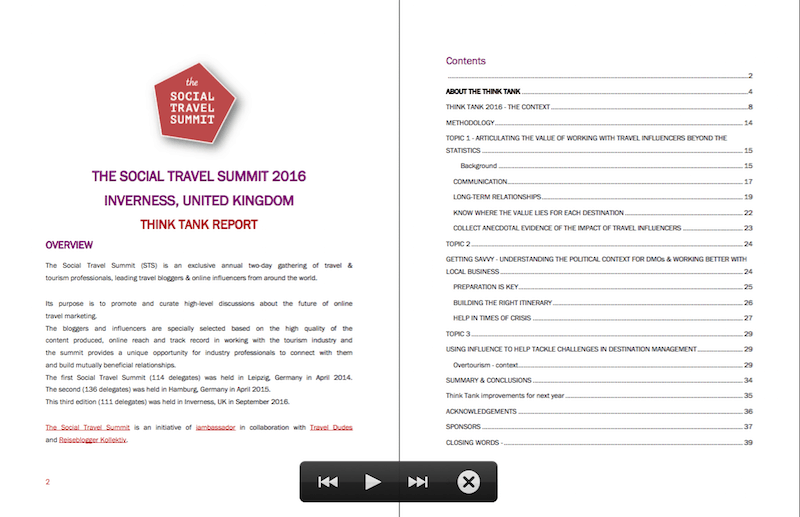I’ve always loved reports, and report-writing. Strategy, research, the creativity that goes into coming up with an original document that stands out to benefit, and help others, in making better business decisions. In taking a fresh look at something previously unnoticed. In a world of infinite possibilities, there is something very gratifying in producing a “finite document“. Even more so, if it’s a really useful industry white paper meant to be shared, such as the “Think Tank Report” following every year’s Social Travel Summit. (All of them past reports are available for download here; I recommend you to read especially last year’s report, full of useful tips, insights and information).
At this year’s Social Travel Summit #STSKitzbuehel (you can, by the way, read more about the conference as such here), three topics have been selected in order to lay the ground for the next Think Tank Report:
- Putting together the perfect visit: Essential ingredients to blog trips, what Destination Management Organisations (DMOs) need to stop doing, the basics of how to balance commercial and creative objectives so as to support mutually beneficial ways of working together.
- Beyond content: how influencers can help DMOs with training and product development, expanding the role of influencers beyond marketing, and making them as useful as possible during a visit.
- The role of influencers in crisis and recovery: More and more destinations have found themselves having to recover their image from post-terrorist attacks, natural disasters, or other major geopolitical events. How can travel influencers assist in this process?

Participants at #STSKitzbuehel gather during a fruitful Think Tank Discussion (c) iambassador / Frankie Thompson
“Hi Elena! I would be very grateful if you could be the topic leader on ‘how influencers can prove themselves useful in a destination, beyond producing content’. We know it’s becoming important. And as someone who does consultancy, we thought you’d be ideal for the job …”
When Peter Jordan, a consultant himself who I’ve been fortunate enough to meet over several occasions this year (including #NBEFinland & ITB Berlin), reached out to me in this way, I knew I was up for the challenge: Picking the brains of some 30 pre-selected travel influencers, DMO representatives & consultants about improving relations between the travel industry & travel publishers, and moving them towards suggestions for the subsequent Think Tank report. Wow. Certainly a challenging task, but knowing me a little, I think you would have noticed that I do enjoy public speaking and/ or moderating, a lot …! 😉

Peter Jordan setting the stage for the Think Tank Discussion to start (c) iambassador / Frankie Thompson
The full report, including answers to all of the above topics, will be available on this website: http://thesocialtravelsummit.com/think-tank/. Meanwhile, to give you further insights, some of the questions we discussed, as well as some of the (preliminary) results we gathered, are listed as follows (I have typed up the “answers” in a loose brainstorming format, please check for the full report up on “The Social Travel Summit” website):
To what extent are influencers already “going beyond content” and doing this type of micro-consulting?
Depending on the ability, and willingness, of each individual influencer, travel publishers have been found to be:
- Hosting “micro-conferences”, and conferences
- Being hotel testers or mystery guests, i.e. providing review and feedback to management, sometimes loosely, sometimes more professionally, or moving towards the latter
- Forming influencer collectives, offering consultancy for campaigns, as well as strategic tourism management consultancy, i.e. on an institutional and / or supranational, e.g. EU level
- Providing Social Media teaching and training, which by default is always evolving (“algorithms are changing every second week”)
- Experiencing products that are “up for inspection”, and going back to partners with first-hand business development advice
- Stimulating product development / brand-building processes by “sheer passion”: Creating something “new”, such as a road trip product in Western Ireland, which locals see “only as a road”, but influencers can turn, market and brand it, into an actual product that pays into the local tourism brand
- Being very market and / or niche specific, like working on an LGBT travel campaign in Austria for the German speaking markets
What “ingredients” are needed from both sides to make it work?
- Awareness of the “intercultural dialogue” and all of its pitfalls and challenges, both across countries, as well as across industries and their individual “languages”
- Sense of trust , trust, TRUST (!) in each other’s abilities and possibilities
- Longevity (especially in terms of strategic business advice, having a proven track record, matching up quality / industry criteria, referencing previous awards, etc.)
- Quality & community
- Understanding each other’s (business) needs and goals
- Acting as catalysts in stimulating creativity in the exchange: Requires openness on both parties’ behalf!

I really enjoyed moderating this kind of Think Tank discussion with my international peers! (c) iambassador / Frankie Thompson
What are “quick-wins” for influencers and DMOs? What type of training is most effective and easy to arrange?
Again, here are some of the findings my Think Tank participants have experienced in the past:
- Short, professional conversations (mostly during mealtimes, such as sitting together for lunch or dinner), as well as presentations in front of local stakeholders
- Twitter chats and / or competitions, driving attention towards sales people
- Sharing references with partners on the spot, demonstrating easy-to-implement, “how-to” approaches
- Going “from complaint to case”, emphasizing tailor-made approaches that worked in previous situations (and why)
For DMOs: What do influencers need to remember when looking to pitch themselves in this way?
According to our discussion, they need to:
- Remind themselves about “being professional”, what this means, as well as how to present it. It also relates to the uniqueness of the brand, what influencers are able to do in the cooperation, and how to uncover mutually beneficial talents (requires understanding, trust, and continuous relationship building)
- Influencers need to show, demonstrate and explain results. They need to “show a face”.
- Set budgets, allocate resources, and think in terms of a long-term approach together with the DMO
- Create case studies that demonstrate relevance and reach, underlined by examples
- Demonstrate and manage ROI, ensure measurement and follow up discussion
Curious to know more?
Check out all of my #STSKitzbuehel photos here:
… and do not miss our happy #STSKitzbuehel Video either, both fun and informative:
[su_youtube url=”https://www.youtube.com/watch?v=pQ2aqPXhUoE” width=”800″]
What is your opinion about all of the above trends & developments?


